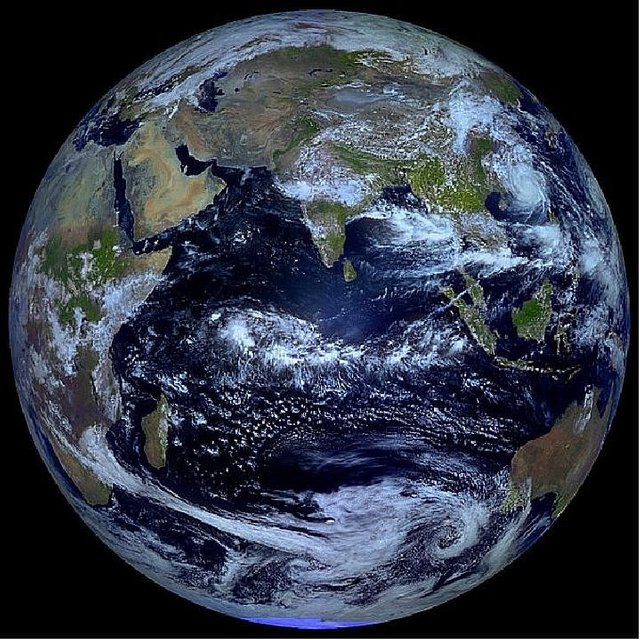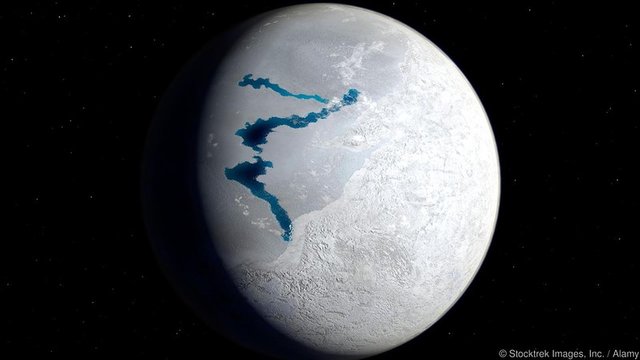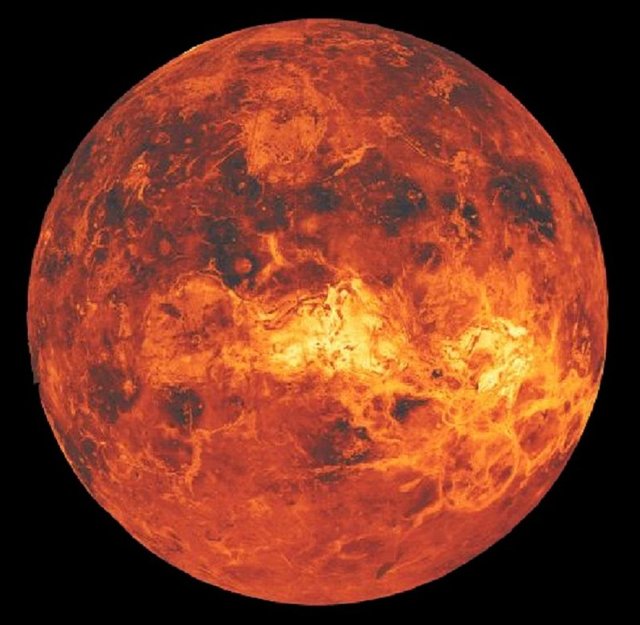Exoplanets located in habitable zone may never be as hospitable as Earth
It was thought previously that exoplanets orbiting stars similar to our Sun would go through water-rich phases when young star starts warming, becomes Sun-like, and melts the ice on planets located in habitable (i.e. at the distance where liquid water can exist) zone. With the growing number of exoplanets discovered, more and more of them are located in this habitable zone.
Even iceballs in the Solar System, including moons Enceladus or Europa may become habitable in this way, the theory goes (after the Sun will evolve further).
The new study of the team led by Jun Yang of Peking University, published in the journal Nature Geoscience, reveals that this was less like than had been imagined.

Image: Roscosmos / NTs OMZ / SRC Planeta
Without greenhouse gases in the atmosphere which were abundand on early Earth, the energy required to thaw an icy planet would be do high that it would transit from frozen to hellish state without an intermediate, moderate/liveable phase.
The team wrote:
We find that the stellar fluxes that are required to overcome a planet's initial snowball state are so large that they lead to significant water loss and preclude a habitable planet
They suggested that many icy bodies may never pass through a habitable Earth-like state. Among these, Europa and Enceladus will likely morph directly from iceballs into fireballs by the time the Sun reaches red giant phase.
Earth was an example of an icy world that thawed into habitable condition about 700 million years ago.

Image: Stocktrek Images, Inc. / Alamy - Snowball Earth
Geologists have found evidence that sea ice extended to the equator 716.5 million years ago, bringing new precision to a "snowball Earth" event long suspected to have taken place around that time. Then, as the brightness of the Sun increased, proper concntration of greenhouse gases from volcano eruption and/or some unknown sources made our planet habitable.
At the same time Venus, the Earth's twin sister planet, also located in the habitable zone, became the hottest body in the Solar System with surface temperature 470 C.

Image: ESA/Venus Express
Researchers conclude that the orbit distance only cannot be reliable criteria to define "habitability" of the exoplanet. In the next decade, when new powerful space- and ground-based telescopes will be deployed, new definitions of the habitable zones should be developed, allowing to concentrate efforts on the most perspective objects.
Source: http://www.nature.com/ngeo/journal/v10/n8/full/ngeo2994.html?foxtrotcallback=true
science a wholly beautiful subject or you can say a whole world 😍😍😍
Please follow Upvote or promote my account in this steemit, i really need it. Hopefully not ignored. Thanks , hope you easy sustenance
i upvote u and follow u also